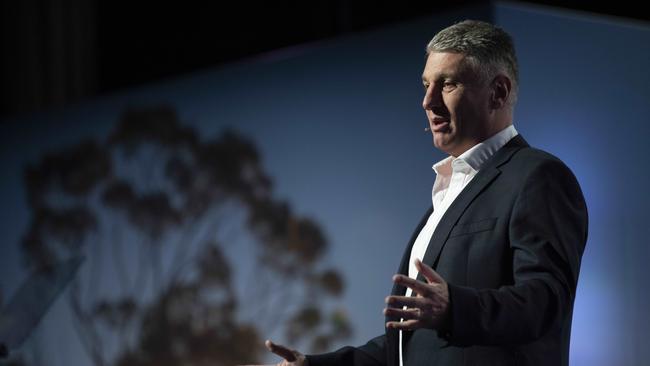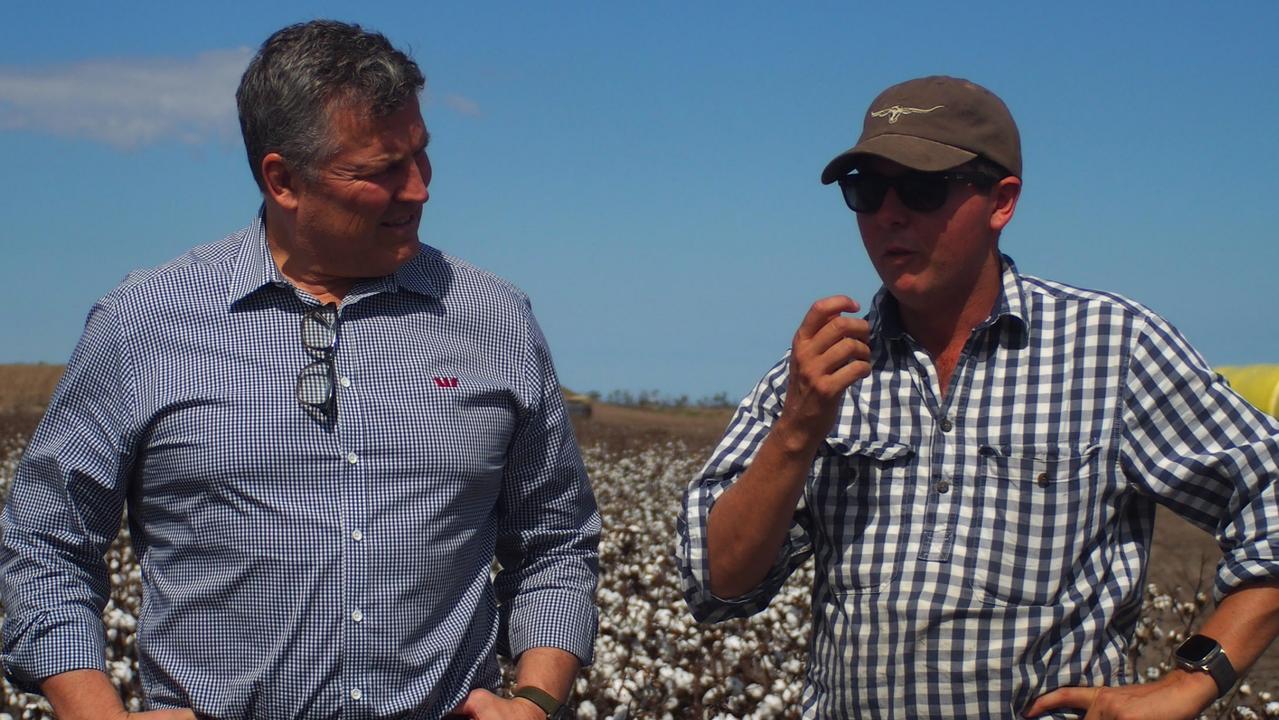‘Under attack’: food processors consider sending head office jobs overseas amid fierce talent war
More people are moving to the country, but remote working and border closures mean food is being left to rot with nobody to pick, pack and tend to crops.

Some Australian food producers are considering offshoring head office jobs as they battle to compete with big city firms in a national talent war, with one chief executive saying they were “under attack” from the likes of Amazon and Uber.
A tight labour market – exacerbated by two years of pandemic-fuelled border closures – has sparked a two-pronged employment crisis for food producers as they struggle to attract farm workers and compete with bigger companies, which are pulling out all stops to retain their corporate staff including offering increased flexibility.
Paul Thompson, CEO of ASX-listed nut producer Select Harvests, said if the company can’t attract key administrative roles – ranging from finance to human resources – amid the fierce competition it may have no choice but to employ people in offices overseas.
“We proved for two years in Melbourne for 257 days (of lockdown) that we didn’t need to go into the office. Many of those jobs may not need to be in this country,” Mr Thompson said on Wednesday.
“We’re getting reasonably desperate to get the right sort of talent. We may be resorting to having to actually offshore some of these sorts of these roles.”
Talent is emerging as the biggest issue facing Australia’s food sector, with numerous agribusiness leaders calling for increased support from the new federal government to encourage the return of backpackers and other overseas workers.
Brent Eastwood, CEO of JBS Australia – the country’s biggest meat and food processor – said food producers were “under attack”.
“Nothing more critical right now in this country than our labour situation. The previous government was aware of this work. We believe the Albanese government is working on it. We need to get serious about it,” Mr Eastwood said. “We need to get hundreds of thousands of people back in this country.”
Anthony Di Pietro, CEO of the LaManna Premier Group, urged the new federal government to reconsider its support for agriculture visas.
Labor has previously flagged expanding the Pacific Labour Mobility Scheme instead.
But Mr Di Pietro said Australia cannot rely on Pacific workers alone to fill tens of thousands of farm job vacancies.
“We have to bring labour in and Pacific Islanders are not going to fix the problem. We have to work on our skilled market … and sell our industry much better than we have.
“We’ve all been guilty of underselling, but we do need to bring international in, and we need to take the red tape out quickly.”
Michael Simonetta, boss of Perfection Fresh – one of Australia’s largest privately owned fresh produce businesses – said the horticulture industry needed tens of thousands of farm workers to pick, pack and tend to crops.
“In the last three to four months, many millions of dollars in crops that have gone to waste,” he said.
“Obviously, there’s always a budget for some waste. But we’ve exceeded that budget by 4 to 5 times in the last three to four months due to the shortage of labour and the shortage of skilled labour.”
Visy executive chairman Anthony Pratt said food waste also threatened to undermine climate change policies.
“Food, waste and organics make up 40 per cent of all landfills. Reducing landfills is one of the most practical, low cost weapons that ordinary citizens have to fight climate change because of methane emissions (and) landfills emit more greenhouse gases than all of global aviation,” Mr Pratt said.
“Methane causes 30 per cent of all global warming, so tackling food waste not only helps fight poverty and boost farmers productivity.”
Mr Thompson backed a call from David Williams – the corporate adviser behind some of the biggest deals across the food and beverage sectors, including returning Vegemite back to Australian ownership – to release asylum-seekers from hotel detention and be “given a life” to help Covid-fuelled food and grocery shortages.




To join the conversation, please log in. Don't have an account? Register
Join the conversation, you are commenting as Logout